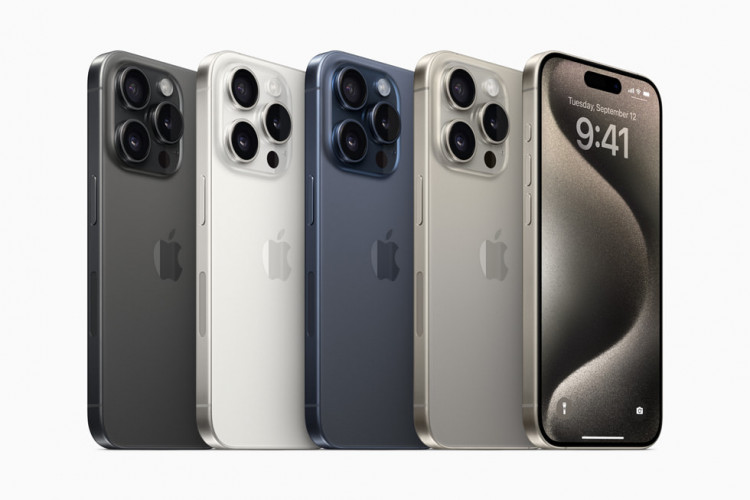Apple Inc. is set to unveil its latest iPhone 16 lineup at its headquarters in Cupertino, California, marking a significant shift in focus towards artificial intelligence (AI) capabilities. The tech giant's highly anticipated event, branded with the tagline "It's Glowtime," comes as the company faces intensifying competition and regulatory challenges. For the first time, Apple's flagship product launch will spotlight AI features, with the introduction of "Apple Intelligence," an in-house generative AI platform that promises to revolutionize user interaction with its devices.
Scheduled for 10 a.m. PDT (1700 GMT) on Monday, the launch event follows Apple's developer conference in June, where the company first revealed its plans to integrate AI more deeply into its ecosystem. Apple Intelligence, as introduced at the conference, is the company's response to the growing demand for AI-driven tools, particularly in the wake of advancements by rivals like Google and Microsoft.
Central to Apple's AI push is the enhanced version of Siri, its voice assistant, which will now incorporate OpenAI's ChatGPT technology. This integration aims to offer a more "natural" interaction experience, positioning Siri as a more intuitive and responsive personal assistant. The new AI features will be available not only on the iPhone 16 but also retroactively on the iPhone 15 Pro and Pro Max models, ensuring a broader reach across Apple's user base.
However, the rollout of these AI capabilities is not without challenges. The Chinese market, which is critical for Apple's growth, presents a significant hurdle. Apple Intelligence, much like other generative AI technologies, requires approval from Chinese regulators before it can be released in the country. This regulatory roadblock follows OpenAI's decision to block access to ChatGPT in China, which could complicate the integration of this technology into Siri for Chinese users. "The Chinese market is hungrier for AI features than the U.S. market," noted Ben Bajarin, CEO and principal analyst at Creative Strategies, highlighting the complexities Apple faces in bringing its AI innovations to China.
The iPhone 16's debut comes at a crucial time for Apple, as it contends with a global slowdown in smartphone sales and increasing competition, particularly from Huawei in China. Apple's iPhone sales accounted for more than half of its $383 billion revenue last year, making the success of the iPhone 16 and its AI features pivotal to the company's financial performance. Earlier this year, Apple resorted to aggressive price cuts in China in response to government restrictions and growing domestic competition, underscoring the high stakes involved.
Adding to the pressure, Huawei is scheduled to announce its own new products within hours of Apple's event, signaling a direct challenge to Apple's dominance in key markets. The timing of Huawei's announcement highlights the intensifying rivalry between the two tech giants, especially as consumers in China and other markets increasingly prioritize AI capabilities in their purchasing decisions.
Apple's emphasis on AI in the iPhone 16 is part of a broader industry trend, with competitors like Google also advancing their AI offerings. Google, which recently moved up the launch of its Pixel smartphones to August, has been promoting features like Gemini Live, which allows real-time voice conversations with a digital assistant. As the competition heats up, the key question, according to Bob O'Donnell, chief analyst for TECHnalysis Research, is "who will be the first to combine a truly personal AI assistant with accurate and personalized information."
While Apple's AI ambitions are generating excitement, the company also faces significant regulatory scrutiny. The U.S. Department of Justice's ongoing antitrust lawsuit against Apple looms large over the company's future. The lawsuit alleges that Apple has maintained an illegal monopoly over the smartphone market, an accusation that the company vehemently denies. The outcome of this case, which could take years to resolve, adds a layer of uncertainty to Apple's business landscape.
Despite these challenges, Apple's stock has seen a notable rise this year, buoyed by investor enthusiasm for generative AI and the broader tech sector. The upcoming product launch is expected to play a critical role in shaping the company's trajectory, particularly as it enters the lucrative holiday shopping season, traditionally its most profitable period.
In addition to the iPhone 16, Apple is expected to unveil updates to other product lines, including the Apple Watch and AirPods. However, it is the AI-driven features of the iPhone 16 that are likely to dominate headlines and drive consumer interest.






